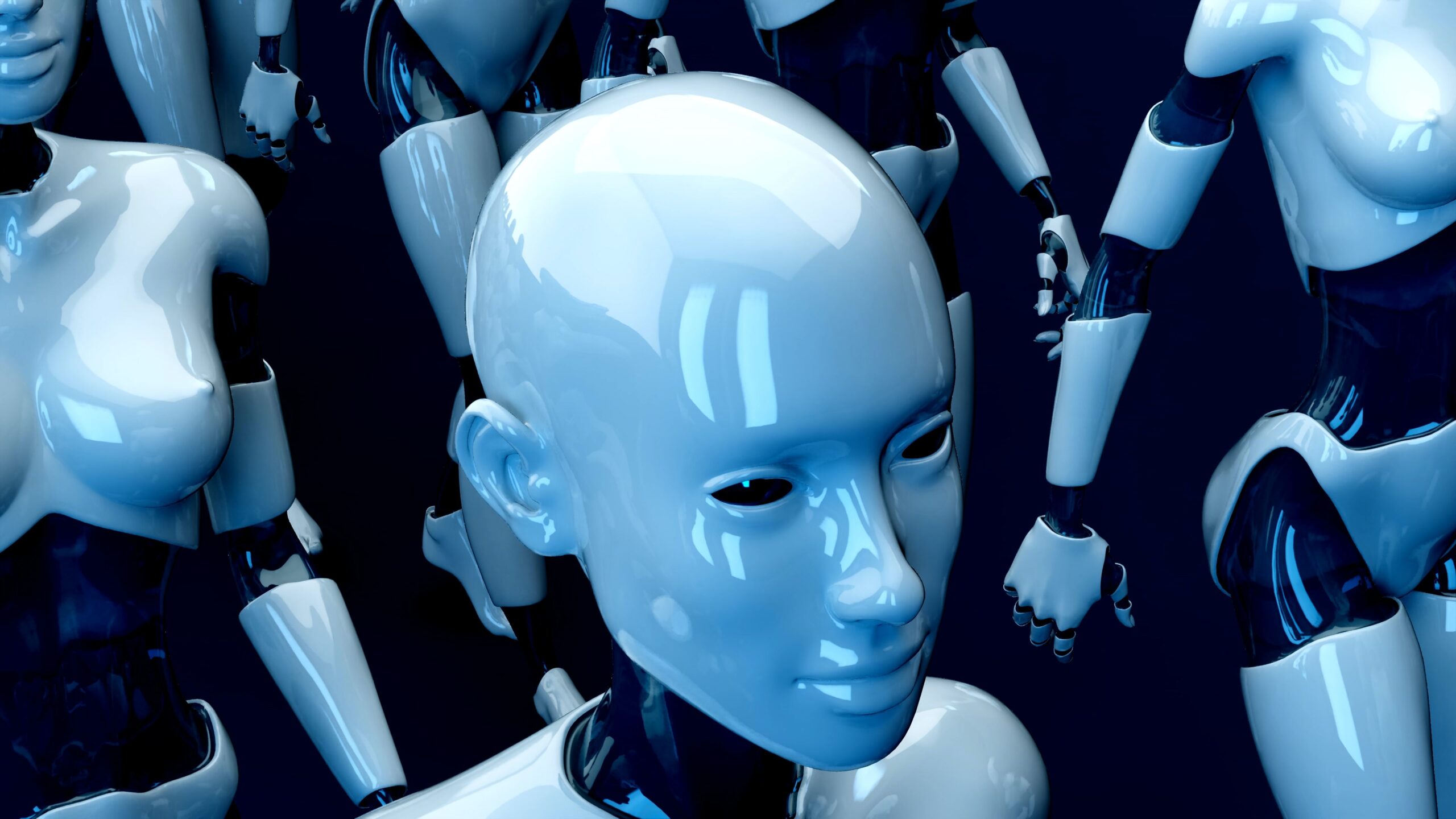Have you ever stopped to think about the ways in which artificial intelligence (AI) is quietly and seamlessly being integrated into our daily lives? From smart home devices that adjust the temperature based on our preferences to personalized recommendations on streaming platforms, AI has become an invisible and integral part of our routines. But what are the hidden advantages of this integration? In this article, we will explore the often-overlooked benefits of AI in our daily lives, highlighting how it enhances efficiency, personalization, and convenience in ways we may not even realize. So, prepare to be amazed by the untold advantages that AI brings to our everyday experiences!
Improving Efficiency and Productivity
Automating Repetitive Tasks
AI integration in our daily lives allows us to automate repetitive tasks, freeing up our time and energy for more important activities. For example, AI-powered tools can be used to automatically organize and label emails, saving you the trouble of manually sorting through your inbox. Chatbots can also be employed to handle customer inquiries and provide basic support, saving businesses valuable time and resources. By automating these mundane tasks, AI enables us to focus on more meaningful and complex work.
Enhancing Decision-Making Process
AI algorithms have the potential to analyze vast amounts of data, providing us with valuable insights to make informed decisions. From predictive analytics to machine learning models, AI integration helps us gather and process data efficiently, enabling us to identify patterns and trends that we may have otherwise overlooked. Through AI-powered decision support systems, we can minimize human biases and make more accurate and data-driven decisions, whether it’s in business, healthcare, or other domains.
Optimizing Resource Allocation
AI integration can greatly optimize resource allocation by analyzing and predicting patterns of usage. This is particularly beneficial in sectors such as transportation, energy management, and urban planning. For instance, AI-powered algorithms can optimize traffic flow, reducing congestion and travel times. In energy management, AI can analyze usage patterns and adjust energy distribution accordingly, leading to more efficient use of resources. By leveraging AI technologies, we can optimize resource allocation and achieve greater sustainability.
Streamlining Communication and Collaboration
AI integration can streamline communication and collaboration processes, making it easier for individuals and teams to work together effectively. Natural language processing (NLP) algorithms can automate language translation services, facilitating communication between individuals who speak different languages. AI-powered collaboration tools can also enhance teamwork by providing real-time updates, facilitating file sharing, and streamlining project management. By enabling smooth and efficient communication, AI helps to foster collaboration and productivity in our daily lives.
Enhancing Personalization and User Experience
Tailoring Recommendations and Suggestions
AI integration allows for personalized recommendations and suggestions tailored to our individual preferences and needs. Through machine learning algorithms, AI systems can analyze our past behavior, preferences, and demographic information to make accurate recommendations. From personalized movie recommendations on streaming platforms to targeted product recommendations on e-commerce sites, AI enhances our user experience by providing us with content and products that align with our interests.
Customizing User Interfaces
AI integration empowers us to customize user interfaces based on our preferences and accessibility needs. Voice assistants like Siri and Alexa enable hands-free interaction, assisting individuals with disabilities by giving them control over their devices through verbal commands. Additionally, AI-powered adaptive interfaces can adjust text size, color contrast, and layouts to accommodate individuals with vision impairments. By allowing users to customize their interfaces, AI enhances accessibility and inclusivity in our daily lives.
Improving Customer Service and Support
AI integration improves customer service and support by providing faster and more accurate responses. Chatbots, powered by AI algorithms, can handle routine inquiries and provide instant assistance, freeing up human agents to address more complex issues. These intelligent bots can accurately understand customer queries and provide relevant information or direct customers to the appropriate resources. By leveraging AI in customer service, businesses can provide efficient and personalized support, enhancing the overall customer experience.

Enabling Smarter Home Automation
Automating Household Chores and Maintenance
AI integration enables smarter home automation, allowing us to automate various household chores and maintenance tasks. For example, robotic vacuum cleaners can navigate our homes independently, keeping our floors clean without any manual effort. Smart appliances can automatically adjust their settings based on usage patterns and energy needs, optimizing energy consumption. By automating these routine tasks, AI integration simplifies our daily lives and frees up time for more enjoyable activities.
Enhancing Home Security
AI-powered home security systems revolutionize the way we protect our homes. Facial recognition technology can identify individuals and differentiate between authorized residents and potential intruders, enhancing the accuracy and efficiency of home security. AI algorithms can also analyze data from various sensors, such as motion detectors and door sensors, to identify potential security threats and trigger appropriate actions, such as sending notifications or alerting authorities. With AI integration, we can enjoy enhanced peace of mind and a greater sense of security in our homes.
Creating Energy-Efficient Environments
AI plays a crucial role in creating energy-efficient environments by optimizing energy usage and reducing waste. Smart thermostats equipped with AI algorithms can learn our temperature preferences and adjust heating and cooling systems accordingly, saving energy and reducing utility bills. AI integration also enables intelligent energy management systems that can automatically regulate energy consumption in different areas of the home, reducing unnecessary energy usage. By using AI to create energy-efficient environments, we can contribute to sustainability efforts and reduce our carbon footprint.
Revolutionizing Healthcare and Medicine
Accelerating Diagnoses and Treatment
AI integration in healthcare and medicine accelerates the process of diagnosing diseases and developing treatment plans. AI algorithms can analyze medical images, such as X-rays and MRIs, to detect abnormalities and assist doctors in making accurate diagnoses. Machine learning models can also predict patient outcomes and suggest appropriate treatment options based on vast amounts of data. By leveraging AI, healthcare professionals can save time, reduce diagnostic errors, and improve patient outcomes.
Improving Patient Monitoring and Care
AI integration enables continuous and remote patient monitoring, leading to improved care and better management of chronic conditions. Wearable devices equipped with AI algorithms can collect and analyze real-time health data, providing valuable insights into a patient’s well-being and alerting healthcare professionals to any abnormalities. AI-powered chatbots can also provide personalized patient support, offering information and assistance in a timely manner. By embracing AI, healthcare systems can deliver more efficient and proactive care to patients.
Enhancing Drug Discovery and Development
AI plays a pivotal role in revolutionizing drug discovery and development processes. AI algorithms can analyze large datasets to identify patterns and predict potential drug candidates, significantly speeding up the research and development process. Machine learning models can also help optimize clinical trials by identifying suitable patient populations and predicting treatment response rates. By harnessing the power of AI, scientists and researchers can make breakthroughs in the development of new medicines, leading to improved healthcare outcomes for people worldwide.

Transforming Transportation and Mobility
Autonomous Vehicles for Safer Transportation
AI integration in transportation paves the way for safer and more efficient mobility. Autonomous vehicles, powered by AI algorithms, can analyze data from sensors to navigate roads, detect potential hazards, and make real-time decisions. With reduced human error, autonomous vehicles have the potential to significantly decrease traffic accidents and fatalities. Moreover, AI integration enables connected vehicle technologies that enhance communication between vehicles, improving traffic flow and reducing congestion.
Efficient Traffic Management Systems
AI integration can optimize traffic management systems, leading to smoother and more efficient transportation networks. AI algorithms can analyze real-time traffic data from various sources, such as GPS devices and traffic cameras, to predict traffic congestion and adjust signal timings accordingly. By dynamically adapting to traffic conditions, AI-powered traffic management systems can help alleviate congestion and reduce travel times. These systems also enable intelligent routing and navigation, guiding drivers to the most efficient routes.
Enhanced Public Transportation Services
AI integration enhances public transportation services, making them more reliable and user-friendly. AI algorithms can analyze historical data and real-time information to optimize public transportation schedules, ensuring buses and trains operate with minimal delays. AI-powered systems can also provide real-time updates on arrival times, service disruptions, and alternative routes, enhancing the overall experience for commuters. By leveraging AI in public transportation, cities can offer more efficient and convenient mobility options to their residents.
Advancing Education and Learning
Personalized Learning Experiences
AI integration in education enables personalized learning experiences tailored to the individual needs and learning styles of students. AI algorithms can analyze students’ performance data, identify strengths and weaknesses, and provide targeted recommendations for improvement. AI-powered adaptive learning platforms can deliver customized content and adapt the difficulty level based on individual progress. By incorporating AI, educators can provide more effective and personalized instruction, empowering students to reach their full potential.
Intelligent Tutoring and Mentoring
AI integration facilitates intelligent tutoring and mentoring, offering students personalized support outside the classroom. Intelligent tutoring systems can assess students’ knowledge gaps, provide targeted feedback, and offer additional resources to help them master challenging concepts. AI-powered mentoring platforms can also connect students with mentors and experts in various fields, providing guidance and support for academic and career development. By leveraging AI in tutoring and mentoring, educational institutions can enhance student learning outcomes and promote lifelong learning.
Efficient Administrative Tasks
AI integration streamlines administrative tasks in educational institutions, freeing up time and resources. Automated grading systems, powered by AI algorithms, can quickly and accurately grade assignments and assessments, reducing the burden on teachers. AI-powered chatbots can handle routine administrative inquiries, such as course registration and schedule changes, providing prompt assistance to students and staff. By automating these administrative tasks, AI enables educators to focus on instructional activities, leading to more efficient and productive educational environments.

Strengthening Cybersecurity Measures
Identifying and Preventing Threats
AI integration strengthens cybersecurity measures by identifying and preventing potential threats in real-time. AI algorithms can analyze network traffic patterns, detect anomalies, and proactively alert cybersecurity teams about potential attacks. Machine learning models can continuously learn from new threats and update security systems to recognize and block malicious activities. By leveraging AI in cybersecurity, organizations can enhance their defenses and protect their digital assets from evolving threats.
Securing Personal and Sensitive Data
AI integration helps secure personal and sensitive data by implementing robust encryption and authentication mechanisms. AI-powered data encryption algorithms can ensure that data remains confidential and protected against unauthorized access. Facial recognition and biometric authentication systems, powered by AI, can also provide an additional layer of security, making it difficult for unauthorized individuals to gain access to sensitive information. Through AI, organizations can strengthen data security measures and safeguard personal privacy.
Detecting and Responding to Anomalies
AI integration enables the early detection and swift response to anomalies in systems and networks. AI algorithms can continuously monitor and analyze data to identify any suspicious or abnormal activities. By establishing a baseline of normal behavior, AI-powered systems can promptly detect deviations and trigger appropriate actions, such as blocking suspicious IP addresses or generating alerts for further investigation. By leveraging AI in anomaly detection, organizations can significantly improve their cybersecurity posture and mitigate potential risks.
Enabling Smart and Sustainable Cities
Efficient Energy Management
AI integration plays a crucial role in enabling efficient energy management in smart cities. AI algorithms can analyze energy consumption patterns and optimize energy distribution to minimize waste and maximize efficiency. Smart grids equipped with AI can dynamically adjust energy flow based on demand, reducing energy loss and ensuring reliable supply. By leveraging AI in energy management, smart cities can achieve significant energy savings and contribute to sustainable development.
Optimized Waste Management Systems
AI integration optimizes waste management systems, leading to more efficient waste collection and disposal. AI algorithms can analyze data from sensors embedded in waste bins to predict waste accumulation levels, optimizing collection routes and schedules to avoid unnecessary pickups. Moreover, AI-powered systems can sort and categorize recyclable materials, enhancing the efficiency of recycling processes. By using AI to optimize waste management, cities can reduce environmental impact and promote a cleaner and healthier living environment.
Improved Urban Planning and Infrastructure
AI integration enhances urban planning and infrastructure development in smart cities. AI algorithms can analyze data from various sources, including transportation systems, public utilities, and even social media feeds, to provide insights into urban dynamics and anticipate future needs. These insights can assist city planners in making informed decisions regarding transportation routes, public facilities, and infrastructure development. By leveraging AI in urban planning, cities can create more livable and sustainable environments for their residents.

Increasing Accessibility and Inclusivity
Assisting Individuals with Disabilities
AI integration plays a crucial role in assisting individuals with disabilities, enabling greater independence and accessibility. AI-powered assistive technologies, such as screen readers and voice recognition software, enable individuals with visual impairments or physical disabilities to access digital content and interact with devices. AI algorithms can also analyze body movements and gestures, allowing individuals with mobility impairments to control assistive devices using natural movements. By embracing AI, we can create more inclusive and accessible environments for everyone.
Providing Language Translation Services
AI integration enables real-time language translation services, breaking down language barriers and facilitating communication between individuals who speak different languages. AI-powered language translation apps can accurately translate spoken or written content, making international travel and cross-cultural communication much easier. Additionally, AI can assist individuals in learning new languages by providing pronunciation guidance and personalized language exercises. By leveraging AI in language translation, we can bridge linguistic gaps and foster global understanding.
Enhancing Communication for Deaf or Hard of Hearing
AI integration enhances communication for individuals who are deaf or hard of hearing. Speech recognition algorithms can convert spoken language into text, allowing individuals to read and understand conversations in real-time. AI-powered sign language recognition systems can interpret and translate sign language into spoken or written words, enabling deaf individuals to communicate with non-sign language users more easily. By using AI to enhance communication, we can create more inclusive and accessible environments for individuals with hearing impairments.
Revamping Entertainment and Media
Enhanced Content Recommendation
AI integration revolutionizes content recommendation in the entertainment and media industry. AI algorithms analyze user behavior, preferences, and historical data to deliver personalized content suggestions tailored to individual tastes. Streaming platforms use AI-powered recommendation systems to suggest movies, shows, and music that align with users’ interests, ensuring an engaging and personalized entertainment experience. By leveraging AI in content recommendation, entertainment providers can enhance user satisfaction and deliver relevant and appealing content.
Personalized Advertising Strategies
AI integration enables personalized advertising strategies that target specific customer segments with customized ads. By analyzing user data, AI algorithms can identify patterns and preferences, allowing advertisers to deliver highly targeted and relevant advertisements to potential customers. AI-powered recommendation engines can also suggest products and services based on users’ preferences and previous purchases, optimizing the consumer experience. By embracing AI in advertising, businesses can create more effective marketing campaigns and increase their return on investment.
Improved Content Creation and Production
AI integration improves content creation and production processes in the entertainment and media industry. AI-powered tools can assist in generating and editing content, automating repetitive tasks and enhancing efficiency. For example, AI can analyze vast amounts of data and audience insights to inform content creation strategies and optimize content distribution. Additionally, AI algorithms can assist in video editing, audio enhancement, and special effects, streamlining the post-production process. By embracing AI in content creation and production, the entertainment industry can deliver higher quality and more engaging content to audiences worldwide.
In conclusion, the integration of AI into our daily lives brings numerous benefits that often go unnoticed. From improving efficiency and productivity to enhancing personalization and user experience, AI plays a pivotal role in transforming various aspects of our lives. Whether it’s automating repetitive tasks, revolutionizing healthcare, enabling smarter homes, or strengthening cybersecurity measures, AI provides us with hidden advantages that greatly enhance our everyday experiences. By embracing AI technologies and their potential, we can continue to unlock new opportunities for innovation and improve the quality of life for individuals and communities worldwide.







Leave a Reply